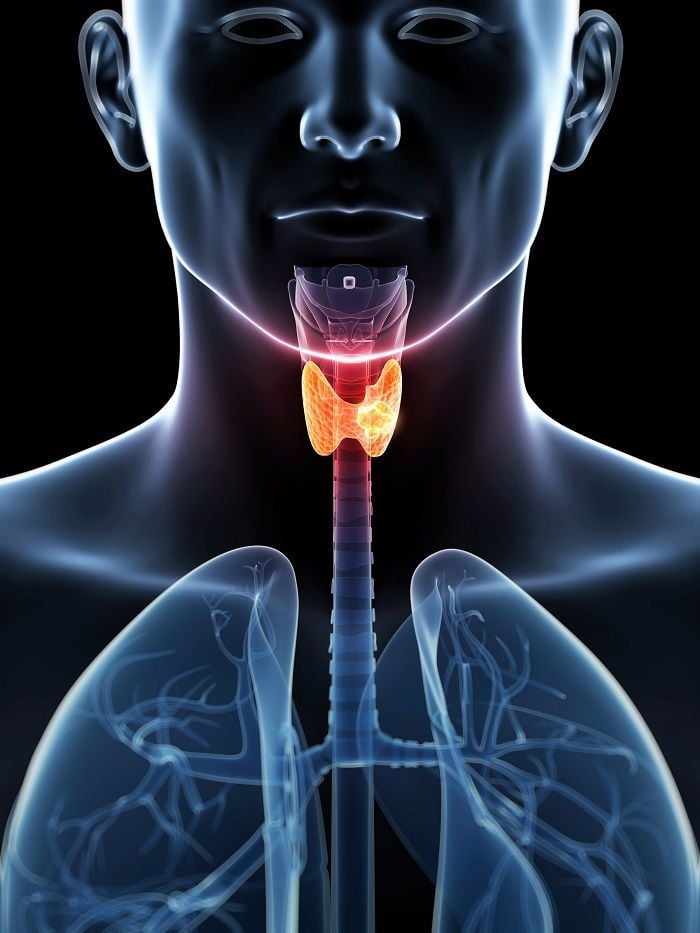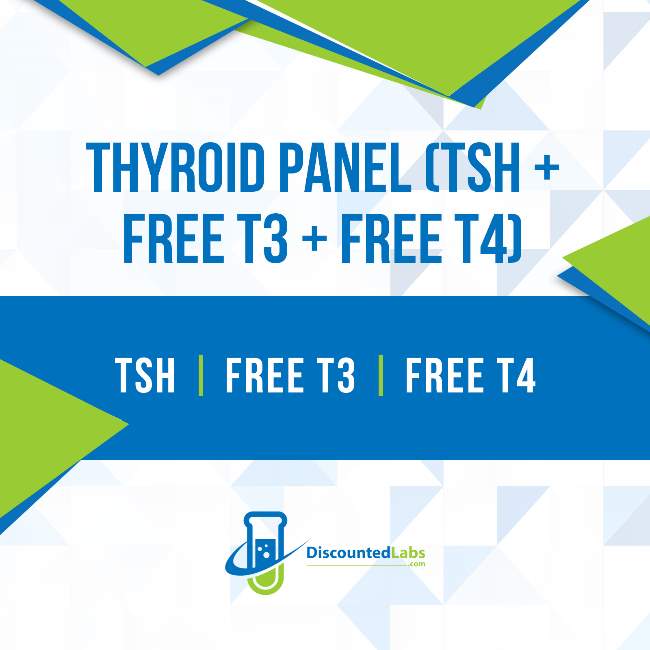Thyroid Blood Test Fasting Tips: Foods & Medications Impact

Why is fasting required for a thyroid blood test?
Fasting is required for a thyroid function test, including TSH testing, to ensure accurate results. Eating or drinking before the test can affect thyroid hormone levels, leading to incorrect readings. Fasting helps maintain consistency in thyroid hormone measurements and aids in proper diagnosis and treatment planning.
Certain foods can change the results of blood tests. For example, do not eat anything for 12–14 hours before a glucose test. Food can raise blood sugar levels and lead to wrong results. There are also specific rules to follow before thyroid tests to prevent mistakes in the results.
The thyroid gland is found at the bottom of your neck, in front of your neck. It has many important jobs. These include helping to produce energy and controlling how your body uses energy. To check for several illnesses, thyroid tests are important. Keep reading to find out how food and other things affect thyroid tests.
Why is Thyroid Blood Test Fasting Required?
It's essential to keep in mind that the hormones and chemicals in your body are always changing, including factors that affect heart rate. For instance, testosterone levels are highest in the morning and start to drop in the afternoon. The main thyroid hormones, like TSH, T4, and T3, are released in different amounts at various times throughout the day.
Eating food or drinking anything other than water can affect how thyroid hormones and other hormones in your body work. This is not good. If you take a test while doing this, your results might not be right. This could lead to a wrong diagnosis.
Think of this like you're watching a car accident. If the accident is really bad, we need to keep all the evidence just as it is. This helps the authorities find out who the guilty driver is. If someone changes the evidence, like affecting the production of thyroid hormones, it can lead to a wrong conclusion about what happened.
You should know that fasting and eating after meals can change the results of your thyroid hormone tests. Fasting means not eating for 8, 10, or even 12 hours before your test. Postprandial means taking a test shortly after eating. For example, if you take a thyroid test in the early morning after fasting, your TSH levels may be higher. This can affect how doctors read your subclinical hypothyroidism. This health issue can be diagnosed based only on TSH levels.
Study on the Effects of Different Nutrients on Thyroid Hormones for Healthy Individuals
A recent study done in 2021 looked at over 4,500 people. It found interesting links between the kinds of food they eat and levels of free T3, free T4, and TSH. The participants were from southern Croatia. They were divided into groups based on their health, gender, lifestyle choices, and other factors.
More than 58 food items were added to the diet of people in the study. The results showed some differences between men and women. Women typically had lower free T3 and free T4 levels. They also had higher TSH levels compared to men. Smokers, on the other hand, had lower TSH levels than those who did not smoke or who used to smoke.
At the end of the study, researchers found that people who ate many foods with a high glycemic index had higher levels of free T3 and T4. However, these same foods were linked to lower TSH levels. On the other hand, foods that are high in protein or saturated fats were connected to lower levels of free T3 and T4. Another key finding was that people who had higher fasting glucose levels generally had higher free T4 levels.
Study on the Effects of Food on Thyroid Levels
To investigate thyroid blood test fasting, a study from 2014 examined 57 adult patients in clinical practice. Their thyroid hormones were tested in a lab, contributing to the interpretation of thyroid function tests. The patients were divided into different groups. The first group had normal levels of T4 and TSH. The second group had high TSH and normal T4, known as subclinical hypothyroidism. The third group had low t4 and high TSH.
The testing happened after a two-hour fast. It does not matter what food you eat because any food can affect thyroid hormones.
The tests showed strong results. TSH levels went down in all patients after eating, no matter how long they had fasted. T4 levels did not change enough to matter for the patients. After the testing, about 75% of the patients were found to have subclinical hypothyroidism just based on the fasting tests. In the tests done after eating, TSH levels were mostly in the normal range.
This finding is important. The time of day when the test happens matters. Also, whether a person has fasted or eaten can greatly affect the diagnosis of subclinical hypothyroidism. This is especially true for pregnant women.
Other Factors That Could Influence Thyroid Hormone Levels
Before a thyroid test, what you eat or drink matters. There are also other things that can change the amounts of thyroid hormones. For instance, too much stress can harm your body and mess with your hormone balance, including thyroid hormones. We need more research to fully understand how stress affects you. But it seems best to avoid taking a thyroid test during really stressful times.
If your doctor suggests a thyroid test, make sure you sleep well and eat normally for a few days before the test. Not getting enough sleep can affect the results of your thyroid hormones, especially if you haven't slept for 24 hours or more. Additionally, you may need to swallow a small amount of radioactive iodine. Also, dieting to lose weight can change your hormones. Because of this, avoid doing a thyroid test if you're sleep deprived or on a diet.
Medications Effect on Thyroid Tests
You may find it surprising that different drugs can affect how your thyroid gland makes hormones, including your thyroid medication. They can also change your test results. For instance, iodine and kelp supplements, Pacerone, chemotherapy drugs, and Lithobid can impact hormone production. Before your thyroid test, you might need to stop taking these drugs for several days. However, you should only do this if your doctor recommends it.
Other medications that may affect your thyroid hormone levels are tyrosine kinase inhibitors and immunomodulating drugs like Interleukin-2. If you are planning to take a thyroid function test soon and use these medications, speak with your doctor. They can tell you if you are good to go or if you need to change or stop your treatment before the test.
Effect of Pregnancy on Thyroid Tests
Pregnancy can greatly affect thyroid hormones and test results. The American Thyroid Association says that hormones like TSH, T3, and T4 change based on the stage of pregnancy. Doctors need to keep this in mind when looking at thyroid test results for pregnant women.
Effect of Different Types of Diseases on Thyroid Blood Tests
When the body is sick, it can affect how much hormone it makes. Different illnesses can change thyroid hormone levels and test results. For instance, some viral infections and autoimmune problems like lupus and Hashimoto's disease can lead to unexplained weight changes and symptoms of thyroid disease, as well as change your thyroid hormone levels. Be sure to share your medical history and any health issues you have with your doctor before having a thyroid test.
What Are the Different Types of Thyroid Tests Available?
You may feel relieved to know that there are several types of thyroid tests. These tests can give your doctor crucial information by enabling you to determine whether your pituitary gland, which influences your thyroid gland, is functioning properly. You can choose tests that check your TSH, T3, or T4 levels. However, doctors suggest doing a test panel that includes several hormones. This way, you get a clearer view of the health of your thyroid gland.
For example, one popular test checks your TSH, free T3, and free T4 all at once. This method is cheaper and works better for testing your thyroid gland. Other tests you might hear about include thyroid antibody tests, the thyroxine-binding globulin test, and the comprehensive thyroid panel, which tests several hormones, including thyroid peroxidase antibodies. You may also consider the reverse T3 test. If you feel unsure about which test is best for checking your thyroid gland's health, ask your doctor for guidance.
Take Charge—Order Your Thyroid Tests Today!
Several factors can influence your thyroid test results. This includes whether you take the test while fasting or after eating. It’s important to have thyroid tests often. This way, you can check how well your thyroid hormones are doing in your body. Always follow your doctor’s advice and choose the right thyroid test that fits your needs.
Visit Discountedlabs.com today for a complete list of thyroid tests at great prices!
References:
Do You Need to Fast Before a Thyroid Test? Guidelines and Tips – Healthline
Why Fasting May Be Recommended for Thyroid Testing – Optimal DX
Thyroid Blood Tests: Types, Purpose, and Preparation – Cleveland Clinic
Preparing for a TSH Blood Test: Fasting and Other Tips – Getlabs
Is Fasting Necessary for Thyroid Testing? – eNational Testing
More information about thyroid tests: Thyroid Lab Tests Types and Controversies






